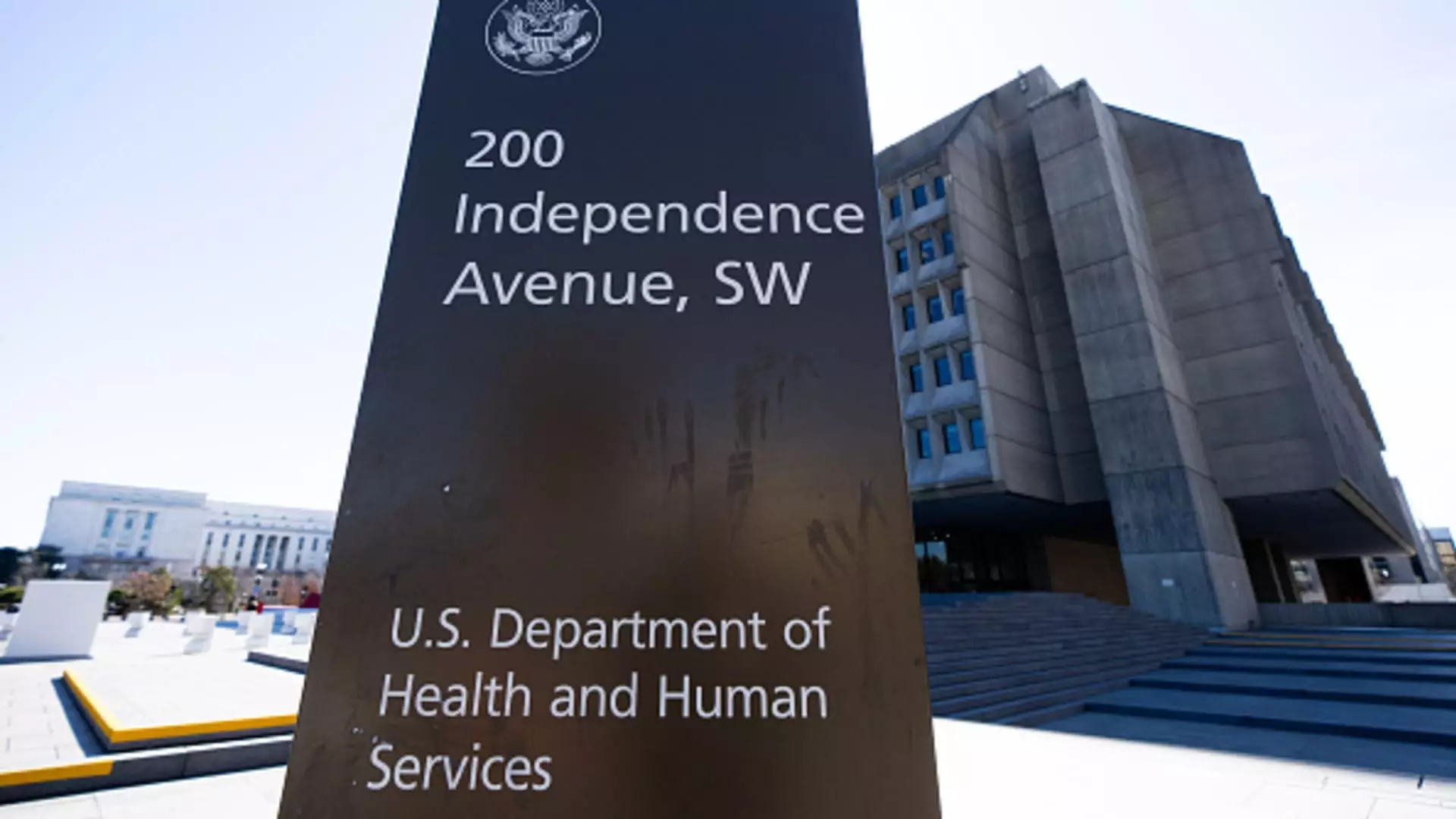In an unsettling twist of governance, the U.S. Department of Health and Human Services (HHS) has embarked on an aggressive spree of layoffs, targeting up to 10,000 dedicated employees. This shift not only signifies a fundamental restructuring of a vital department but highlights a disconcerting trend of devaluing public health in the face of crisis. The timing is doubly alarming, as President Donald Trump recently took steps to dismantle collective bargaining rights within HHS, effectively crippling workers’ ability to defend their positions. Such actions reflect an alarming departure from the tenets of responsible governance, heralding a future where the health and safety of millions stand on precarious ground.
Consolidation or Chaos? The New Administration for a Healthy America
Under the leadership of Health Secretary Robert F. Kennedy Jr., a plan has emerged that seeks not just to streamline HHS but to fundamentally alter its mission. The consolidation of agencies into the proposed Administration for a Healthy America appears, on the surface, to be a well-meaning initiative aimed at reducing bureaucratic bloat. However, the synthesis of agencies that manage crucial funding for addiction services and community health centers raises red flags about priorities and efficacy. In a nation already grappling with health disparities and crises—both chronic and emergent—the idea of slashing resources in such a critical arena is not just reckless; it teeters on the brink of negligence.
Senator Patty Murray aptly articulates the potential fallout: these cuts could impede the nation’s capacity to manage public health emergencies when they inevitably arise. The impending layoffs and lost positions represent more than mere numbers; they embody a palpable threat to the health infrastructure that safeguards our communities. The sentiment that we could be witnessing the transformation of HHS into a hollow shell, misnamed as the Department of Disease, is a chilling concern echoed by many in the health sector.
Beyond Borders: Local and State Impacts of Federal Cuts
The ramifications of HHS’s decisions trickle down to state and local health departments, resulting in even broader job losses and diminished health services at critical junctures. With over $11 billion in COVID-19-related funding being withdrawn, local health agencies are left scrambling to assess the damage. Jobs lost overnight means that essential health services could vanish just as they are needed most. Leaders like Lori Tremmel Freeman, the head of the National Association of County and City Health Officials, have expressed concern over the immediate void these cuts create, one that could see lives lost at the altar of budgetary expediency.
In an environment where public health is perpetually under threat due to factors such as climate change and emerging diseases, this retreat from funding presents a dangerous gamble. Politicians’ through-the-roof ambitions of fiscal restraint must be mirrored with the responsibility to protect public welfare.
Voiceless Workers: Erosion of Collective Bargaining Rights
The efforts to strip federal employees, particularly those within health-related agencies, of their collective bargaining rights is a move that may render HHS staff voiceless in the face of mass layoffs and significant structural changes. The recent executive orders, spearheaded by a government that appears intent on prioritizing power over protection for its workers, suggest an alarming tendency to undermine the very fabric of organized labor. The American Federation of Government Employees, representing many HHS employees, has seen a revival of interest this year, driven by a palpable dread of what the cuts could mean for their livelihoods.
Critics, including Democratic lawmakers, have been vocal in decrying this erosion of rights, linking it to a broader agenda that favors corporate influence over the dignity of civil service. The assertion that this shift might allow private interests, such as tech magnate Elon Musk, to wield disproportionate influence over public services is a troubling notion. The healthcare system, stripped of an effective workforce, risks becoming a playground for profit-seeking ventures while forsaking the citizens they serve.
A Concerning Direction
The ongoing upheaval within the Department of Health and Human Services serves not only as a fiscal adjustment but as a harbinger of a government that seems increasingly indifferent to the tenets of public health. By prioritizing budget cuts over community welfare, this administration risks jeopardizing the very health and safety of millions of Americans. As we stand at this precarious crossroads, it becomes essential to question the motives behind such sweeping changes and hold our leaders accountable—for the choices they make today will shape the health landscape of tomorrow.



Leave a Reply